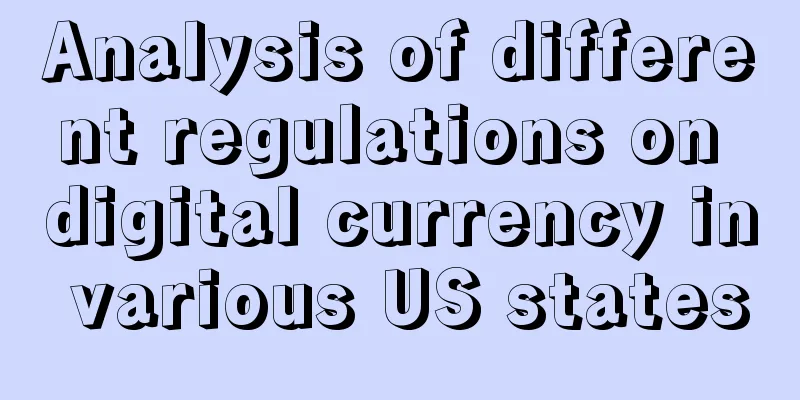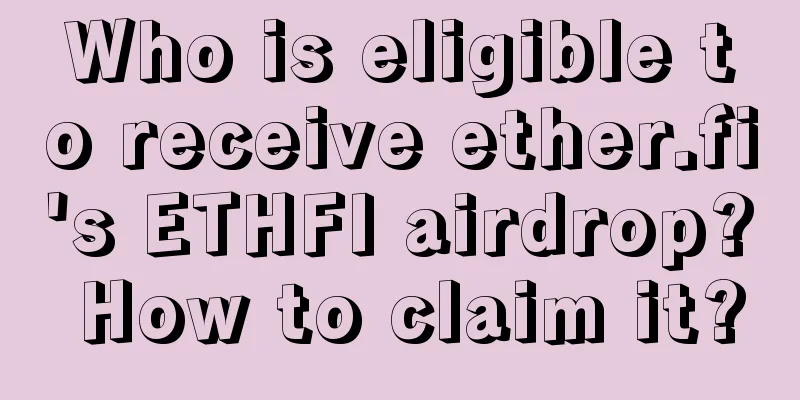Analysis of different regulations on digital currency in various US states

Translation: Nicole New York New York has not issued a Bitcoin license since it issued its final version in June 2015. As a result, several digital currency companies have been operating under a Bitcoin license safety transition period, which allows companies to continue operating in New York as long as they apply for a Bitcoin license after the Bitcoin license takes effect and within a certain period of time. Such companies were not allowed to operate in the United States until their Bitcoin license applications were rejected. California In February 2015, a member of the California Assembly proposed publishing a framework for licensing digital currencies. As mentioned above, the California Assembly approved the bill, which is awaiting review by the California Senate. Afterwards, the San Francisco-based EEF launched a petition opposing the measure. The EEF opposed the $5,000 application fee and reporting requirements as a threat to digital currency innovation. The Washington-based Bitcoin Group, Coin Center, decided to support the measure as long as lawmakers added an amendment that it would only apply to digital currency companies that meet the licensing requirements and have "full supervision." However, in September 2015, the bill was put on hold by Senator Mitchell. Although the bill has been considered for reactivation, the legislature has not yet done so. Despite the bill's reactivation, some members of the Bitcoin Group see the resulting ability to innovate in the industry as a positive impact. North Carolina North Carolina recently removed some digital currency and blockchain business categories from the MTA. The removed businesses include digital currency miners and non-financial blockchain services. In addition, North Carolina clarified that simply transmitting digital currency does not require a special company operating license. The United States has unified the standards for digital currency transmitters and traditional money transmitters. Wyoming As mentioned earlier, Wyoming's current money transmitter bill has raised concerns among some digital currency companies because licensees must own 100% of digital currency transmission holdings. If the bill passes in January 2016, the burden will be reduced appropriately. The bill proposes to add digital currency to the list of assets allowed to be held to meet reserve requirements. If passed, it may allow some digital currency companies to use existing digital currency assets to meet reserve requirements instead of cash or securities. New Hampshire Recently, New Hampshire designated anyone who uses digital currency to exchange for any kind of currency as a money transmitter. In addition, any business that puts digital currency into circulation and takes digital currency away is also a money transmitter. Starting in January 2016, such individuals and companies in the United States must have a sponsor license to become a money transmitter. Importantly, individuals who only have digital currency and use digital currency to buy and sell do not meet the requirements to be a money transmitter. |
<<: After CEO resigns, ASX announces continued support for blockchain initiatives
>>: Australian Stock Exchange to Become Global Leader in Blockchain Technology
Recommend
A woman who is easy to get rich
We often say that money is not everything, but wi...
What are the characteristics of women with short pinkies?
In our lives, everyone's palm lines are diffe...
Palmistry without fate line
In our hands, in addition to the three main lines...
What do national leaders look like?
In social life, some people have strong leadershi...
The fate of a woman with a dimpled chin
Some people have a shallow groove on their chin, ...
Blockchain Democrats to participate in Australian federal election
Rage Review : The Flux Democratic Party, controll...
OKCoin International Business Director Jack: Bitcoin and blockchain technology have broad application prospects
Last Friday, Jack Liu, international business dir...
The personality of people with upturned eyebrows and their business strategies
People with upturned eyebrows look more murderous...
Inverted triangle eyes pictures_Inverted triangle eyes face reading
Eyes are the windows to the soul. In physiognomy ...
What kind of woman will be lonely for life?
There are many kinds of loneliness: inner lonelin...
For the future of the Internet of Things, will blockchain be the future frontier of network security?
Why do experts think the Internet of Things needs...
Palmistry Analysis: What does a broken lifeline mean?
Palmistry Analysis: What does a broken lifeline m...
Can Bitcoin continue to rise to $1 million? The bulls and bears are arguing!
Bitcoin prices have surged in the past few months...
Ten Palmistry Wealth Lines
There are many lines on the palm. So which lines ...
Decentralizing IoT networks with blockchain
Baozou Comment : The current IoT ecosystem relies...









